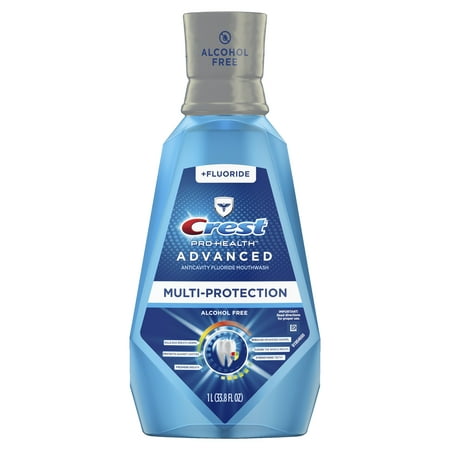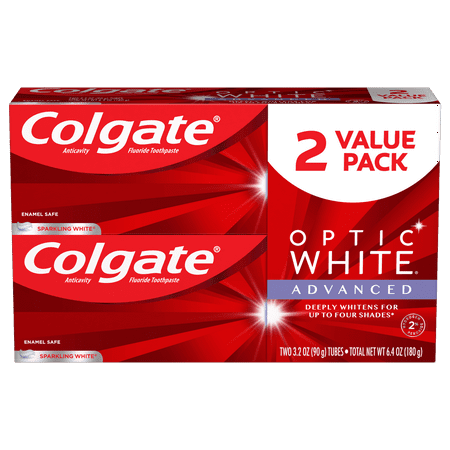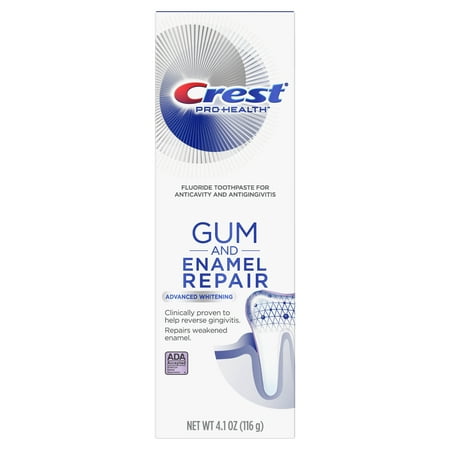Crest Pro Health Advanced Mouthwash, Alcohol Free, Mint, 33.8 fl oz
Crest Pro-Health Advanced Multi-Protection Mouthwash with Fluoride helps you have more potent enamel* for a more healthy mouth. It kills bad breath germs, enables save you cavities, strengthens tooth, cleans teeth and gums, and freshens breath. *whilst introduced to a great oral care ordinary by using strengthening enamel









Crest Pro-Health Advanced Alcohol Free Multi-Protection Mouthwash, Fresh Mint, 33.8 Fl Oz: Helps prevent cavities Kills bad breath germs Strengthens tooth Cleans enamel and gums Alcohol unfastened so there may be no burn of alcohol Fresh mint taste freshens breath
Alcohol most commonly refers to:
- Alcohol (chemistry), a class of compounds
- Ethanol, one of several alcohols, commonly known as alcohol in everyday life
- Alcohol (drug), intoxicant found in alcoholic beverages
- Alcoholic beverage, often referred to as "alcoholic drink", typically divided into three classes—beers, wines, and spirits, containing ethanol
Alcohol may also refer to:
Health has a variety of definitions, which have been used for different purposes over time. Health can be promoted by encouraging healthful activities, such as regular physical exercise and adequate sleep, and by reducing or avoiding unhealthful activities or situations, such as smoking or excessive stress. Some factors affecting health are due to individual choices, such as whether to engage in a high-risk behavior, while others are due to structural causes, such as whether the society is arranged in a way that makes it easier or harder for people to get necessary healthcare services. Still, other factors are beyond both individual and group choices, such as genetic disorders.
Mouthwash, mouth rinse, oral rinse, or mouth bath is a liquid which is held in the mouth passively or swirled around the mouth by contraction of the perioral muscles and/or movement of the head, and may be gargled, where the head is tilted back and the liquid bubbled at the back of the mouth.
Usually mouthwashes are antiseptic solutions intended to reduce the microbial load in the mouth, although other mouthwashes might be given for other reasons such as for their analgesic, anti-inflammatory or anti-fungal action. Additionally, some rinses act as saliva substitutes to neutralize acid and keep the mouth moist in xerostomia (dry mouth). Cosmetic mouthrinses temporarily control or reduce bad breath and leave the mouth with a pleasant taste.
Rinsing with water or mouthwash after brushing with a fluoride toothpaste can reduce the availability of salivary fluoride. This can lower the anti-cavity re-mineralization and antibacterial effects of fluoride. Fluoridated mouthwash may mitigate this effect or in high concentrations increase available fluoride, but is not as cost-effective as leaving the fluoride toothpaste on the teeth after brushing. A group of experts discussing post brushing rinsing in 2012 found that although there was clear guidance given in many public health advice publications to "spit, avoid rinsing with water/excessive rinsing with water" they believed there was a limited evidence base for best practice.
Pro is an abbreviation meaning "professional".
Pro, PRO or variants thereof might also refer to:





Reviews
There are no reviews yet.